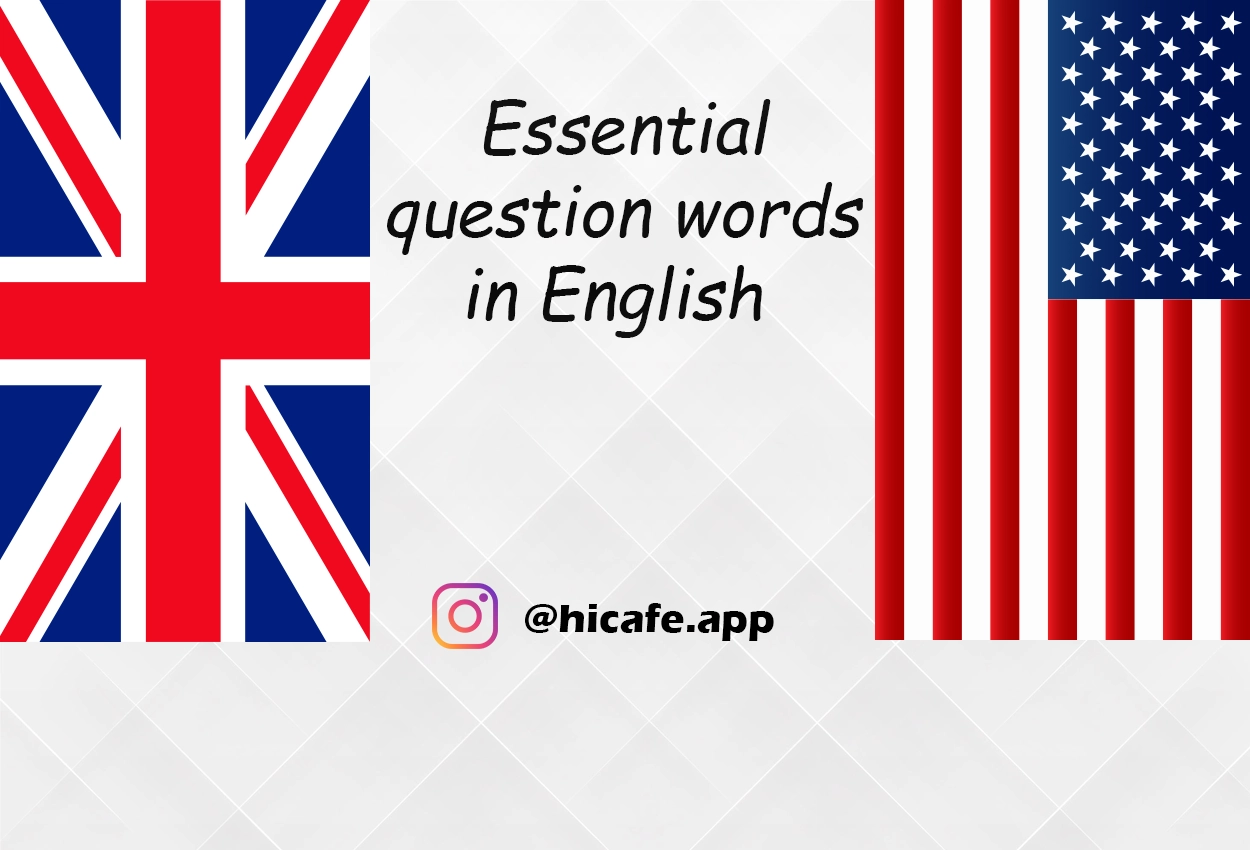The structure of a question, including the order of words and the use of question words in English, plays an important role in conveying meaning. By learning the basics of question formation, you can have clearer and more meaningful interactions.
Previous Conversation Tip Lesson
Different Ways to Say Thanks in English
How to Use Question Words in English
Let’s explore and understand the role of question words in English grammar and conversations in this lesson. Be careful of the word order when you make questions. Remember:
- Question word
- Auxiliary
- Subject
- Verb
For example:
- (1)What (2)do (3)you (4)want?
- (1) How (2)do (3)you (4)study English?
- (1)Where (2)do (3)you (4)stay?
- (1)Why (2)do (3)you (4)go there?
This is the same order for questions using the verb “to be”, where the verb “to be” is the auxiliary:
- (1)What (2)is (3)it? (Verb to be)
- (1)Where (2)are (3)you (4)going? (Present Continuous tense)
Question words in English
The main question words are:
- What (for a thing, when there are many things)
- Which (for a thing, when there aren’t many things)
- Who (for a person)
- Where (for a place)
- Why (for a reason)
- When (for a time)
- How (for a method)
- Whose (to ask about possession)
Examples
- What is her name?
- Which game do you play?
- Who is your teacher?
- Where do you live?
- Why do you like this restaurant?
- When is the match?
- How do you practice English at home?
- Whose bag is this?
But we can also make compound questions by putting together two words.
- How often…? (to talk about frequency)
- How long…? (to talk about duration)
- How much…? (to talk about quantity in uncountable nouns)
- How many…? (to talk about quantity in countable nouns)
- What kind / What type…?
- Which kind / which type…?
Examples
- How often do you go to the gym?
- How long does it take to fly from New York to Paris?
- How much does a mug cost?
- How many siblings do you have?
- What kind of film do you watch?
- Which type of sport do you play: team sports or individual sports?
Remember to use the same word order: question word + auxiliary + subject + verb
Frequency words in English
There are lots of ways to talk about how often we do something.
For example:
How often do you go to the cinema?
- Once a week
- Twice a week
- Once a fortnight (fortnight = 2 weeks)
- Every day
- Every two or three days
You can also use adverbs of frequency:
- Always (100% of the time)
- Often (80% of the time)
- Usually (80% of the time)
- Sometimes (50% of the time)
- From time to time (30 – 50% of the time)
- Hardly ever (5 – 10% of the time)
- Never (0% of the time)
or
- I never go to the museum – I hate it!
- I go there from time to time.
- I hardly ever go.
Remember the word order rule: these adverbs go after the verb to be and other auxiliaries, and before other verbs.
He is never tired.
She often wakes up early.
Duration in English
We use “How long…?” to ask about the length of time.
With the verb “to be”
- How long is the class?
- How long was your trip?
With the verb “take”
You need the auxiliary do / does to ask a question with take:
- How long does it take to fly to Paris? (Use “it” because you are talking about a thing, not a person)
- How long did the match take? (You don’t need “it” because you have the subject “match”)
When you ask a person about the time they need to do something, there are three possibilities in English:
- How long does it take you / him / her / them to …
- How long does it take to…
- How long do you / they take to…
How long did it take you to watch the film? (“did it take you” = the time you needed)
Or
How long did it take to watch the film?
How long do you take to have a shower? (you take the time – no “it”)
Or
How long does it take you to have a shower?)
Or
How long does it take to have a shower? (you are asking about the duration of shower, not the time you need to have a shower)
Conclusion
English question words are an essential part of asking questions in English. Remember to use the correct question word in the right context. With this guide, you now have all the tools you need to confidently use English question words in your daily conversations.
Now, go out there and start asking questions!
Next Conversation Tip Lesson
Asking for Directions English Lesson
Related Conversation Lessons
None
Practice Conversation with HiCafe App
By using HiCafe App, you can join free discussion events and Practice English Conversation online or in-person and improve your verbal skills.
All Conversation Lessons
To see and read all of our conversation lessons, you can visit our Improve English Speaking Skills page.



